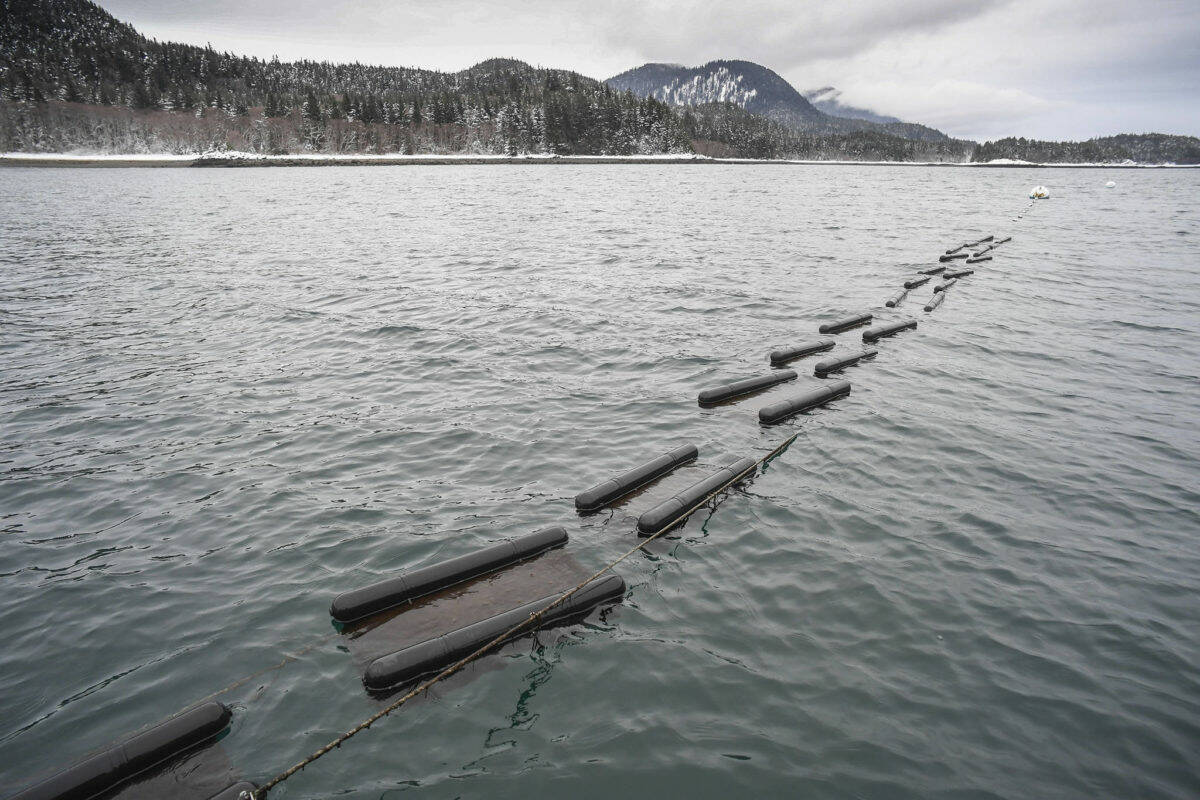The U.S. Department of Agriculture recently announced a $500,000 grant for a regional development corporation Southeast Conference in an effort to support the growth of the mariculture industry in Southeast Alaska.
The grant will be used to draft blueprints for a processing facility on Prince of Wales Island where several mariculture farms are located.
“This is really intended to be a proof of concept model,” said Robert Venables, executive director of Southeast Conference. “This will complement and integrate with existing infrastructure and helps create and support a new industry.”
Small producers often can’t afford to build their own infrastructure for processing and shipping, Venables said, and the proposed facility will help those businesses with operations that may be too expensive for them to afford on their own.
“Individual businesses can articulate what their needs are,” Venables said of the planning process, “so we can create a facility to accommodate whatever aspect they need.”
The proposed facility will support aquatic farming of kelp, seaweed and shellfish, USDA said in a statement.
“Co-op members will be able to handle, store, freeze, pack, process, label and load their harvest safely and cost-effectively,” USDA said.
[First day of session brings familiar tensions to Legislature]
Venables said Southeast Conference would be meeting with local communities on Prince of Wales Island, hopefully next month, before plans were formally drafted.
According to USDA, the grant money will be used to create a blueprint for the facility, which Venables said the design and construction of would be put out to bid.
“Farmers in the region have requested dedicated infrastructure to scale up their operations to meet market demands,” said USDA Under Secretary for Rural Development Xochitl Torres Small, in a statement. “This investment is the first step in standing up a shared processing space that will save on costs and create new market opportunities.”
City of Craig Mayor Tim O’Connor told the Empire there were several sites around the island that grow various mariculture products, such as kelp and shellfish, but there were no local processing facilities.
“We need the processing facilities to seed the kelp and process it once it’s grown,” O’Connor said. “There’s definitely demand and a need for this stuff. We want to set ourselves up for that. (Prince of Wales Island) is totally surrounded by bays and coves that can grow this stuff.”
An increase in mariculture would also help seasonal fishermen, O’Connor said, as many mariculture products are seeded and harvested in later winter through spring, but the fishing season doesn’t begin until summer.
The grant is part of USDA’s Southeast Alaska Sustainability Strategy, an effort by the Biden administration to engage with tribal governments to diversify the economy in Southeast Alaska. Last year the administration announced it was reversing a decision by the Trump administration to lift the Roadless Rule on the Tongass National Forest, a move which drew criticism from Alaska’s Congressional delegation who criticized the move for inhibiting economic activity in the region.
However, Sen. Lisa Murkowski, R-Alaska, issued a statement lauding the grant.
“I commend USDA for giving Southeast Conference the opportunity to use their local knowledge to create a blueprint for a culturally and geographically appropriate facility,” Murkowski said.
Director of the Alaska Division of Agriculture David Schade told the Empire in a phone interview his department has worked to develop the state’s farmers, both traditional and mariculture, through loans and marketing.
“We’re working on making sure that we have all the inspections and infrastructure and marketing in place,” Schade said of the state’s agriculture sector. “The state has been working really hard to make it easier for the permitting.”
Schade said the state has been working with both producers and suppliers to ensure contracts for year-round supply chains. One of the challenges, according to Schade, is finding the right market for the various products produced in the state. In the case of mariculture, some kelp products are made for human consumption while others are for industrial uses such as fertilizer.
Shansheet Inc., an Alaska Native corporation on Prince of Wales Island, is one of the groups that will be involved in the planning, and may potentially lease the land for the facility.
Shansheet Inc. President and General Manager Edward Douville said in a phone interview the community was excited to see the opportunities the development will bring.
“A lack of infrastructure in general is, I think, the immediate problem,” Douville said. “It seems like people are buzzing and there’s a lot of interest but we’re still in that proof of concept phase.”
There was some concern about the impact on subsistence uses in the area, Douville said, but it was possible the infrastructure might be used for those purposes. Overall the community was pleased to see the mariculture industry be developed and excited about other industries that might stem from it such as eco-tourism and carbon capture.
“I think some sort of infrastructure can really be the catalyst that’s needed to really propel the industry forward,” Douville said.
• Contact reporter Peter Segall at psegall@juneauempire.com. Follow him on Twitter at @SegallJnuEmpire.

